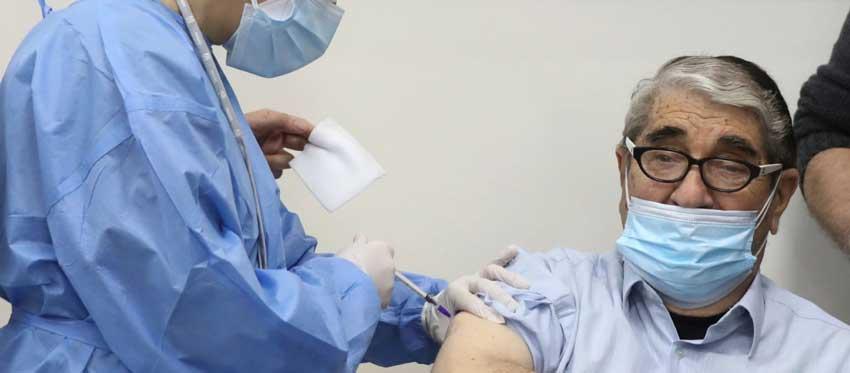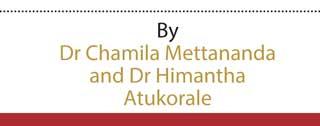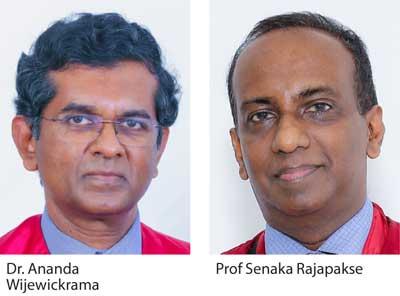25 Mar 2021 - {{hitsCtrl.values.hits}}

 Since the invention of the Small Pox vaccine by Dr. Edward Jenner in 1796, vaccines have saved millions of lives that would have otherwise perished because of infections. Vaccination or its end result which is known as immunization has thwarted epidemics of deadly diseases such as whooping cough, tuberculosis, and measles. Smallpox was eradicated from the world since1977 due to a successful vaccination campaign. The paralytic disease polio has seen near eradication because of an effective vaccine.
Since the invention of the Small Pox vaccine by Dr. Edward Jenner in 1796, vaccines have saved millions of lives that would have otherwise perished because of infections. Vaccination or its end result which is known as immunization has thwarted epidemics of deadly diseases such as whooping cough, tuberculosis, and measles. Smallpox was eradicated from the world since1977 due to a successful vaccination campaign. The paralytic disease polio has seen near eradication because of an effective vaccine.
Exactly a year ago, COVID-19 was declared a pandemic by the World Health Organisation. According to António Guterres the UN chief, after a year of chaos, vaccines provide “some light at the end of the tunnel”. Yet with numerous different vaccine brands being introduced by leading biopharmaceutical companies, some serious conflicts of opinion have surfaced.

This article will provide simple guidance on the “Dos and Don’ts of the COVID-19 vaccine” based on the expert opinion of two leading personalities of Ceylon College of Physicians (CCP) Professor Senaka Rajapakse and Dr. Ananda Wijewickrama. Professor Senaka Rajapakse is the current president of the Ceylon College of Physicians and the director of the Postgraduate Institute of Medicine. Dr. Ananda Wijewickrama is the immediate past president of the CCP, Senior Consultant Physician at the Infectious Diseases Hospital (IDH), and was the first Sri Lankan to receive the COVID-19 vaccine.
Ceylon College of Physicians is the central body of all specialist general physicians and specialists in different subspecialties. The CCP came into being in 1967 and has since then remained committed to promote the dissemination of up-to-date medical knowledge, promote research and thereby foster postgraduate education in medicine. In disseminating medical knowledge the CCP effectively influences the national healthcare agenda and provides significant benefits to physicians and the community. The specialists at CCP believe in educating the public with correct facts, enabling them to take correct decisions regarding COVID vaccination without being misled by inaccurate facts which are being circulated on social media.
What are the benefits of being vaccinated against COVID-19 infection?
There are numerous benefits out of which the following are the most important. Vaccination reduces the chance of contracting the disease by nearly 70%. It also brings down the severity of the disease and the need for hospitalization by 94%. Simply said, the chances of acquiring the deadly disease is brought down by vaccination and even if a vaccinated person gets infected, there is only a remote possibility of severe medical complications and death.
Two vaccine brands have been approved for use in Sri Lanka namely the Covishield vaccine (AstraZeneca, Indian vaccine) and Sputnik V vaccine (Russian vaccine).
What is the current vaccination procedure?
All eligible people should be vaccinated. Currently, there is ample scientific evidence for vaccinating everyone above the age of 18 years if there are no contraindications. The first dose provides us around 70 % protection against COVID-19 infection. The second dose which is the booster dose further increases the immunity to give up to 95% protection against this deadly disease. The 2nd dose is recommended to be taken 10 -12 weeks after the first dose if it’s the Covishield vaccine and 3 weeks if it’s the Sputnik V vaccine. The injection is given into the muscle, preferably the upper left arm hence called an intramuscular injection.
There are lots of queries on whether this vaccine can cause actual COVID-19 disease. There is no such possibility as it does not contain the virus. The vaccine also will not cause the PCR test to become positive.
What are the common side effects?
Some people could experience the usual after-effects of any other vaccine in the form of body aches, fever, headache, and joint pain for up to 48 hours. However, if one has fever beyond 48 hours of vaccination, it could be due to some other disease like dengue fever. Therefore the public is advised to seek medical advice in instances of continuous fever. There is no scientific evidence supporting an enhanced risk of blood clot formation/ thrombosis following the injection.
A frequent question asked by many people is what they should do immediately after the injection. They can take paracetamol for the above symptoms but if there aren’t any major side effects, it is advised to carry on with their routine day-to-day activities without hindrance. People can have a bath or a body wash after being vaccinated.
Another constant query is about the relationship between experiencing side effects and the degree of protection. There is no such connection between after-effects and the efficiency of the injection.
One important fact that we wish to highlight is the need to comply with wearing masks, hand washing, and social distancing after receiving both doses of the vaccine. As immunized people also can have the disease without symptoms, there is a possibility of them spreading the virus to healthy individuals. Therefore it is of paramount importance that all those who are vaccinated continue their safety precautions.
Who shouldn’t be vaccinated?
People who are having ongoing fever-related illnesses, those who are pregnant, and breastfeeding mothers are not included in the vaccination campaign.
The vaccine is not recommended during pregnancy and breastfeeding as there is no long-term safety data. However, there’s no reason to worry if you have already received the vaccine during pregnancy or breastfeeding without your knowledge.
Can people with chronic medical conditions or those who lead unhealthy lifestyles receive the vaccine?
Patients who have diabetes, long-standing lung conditions like asthma/ COPD, adult heart disease (heart attacks) patients, those who have had heart disease since childhood, kidney disease patients, patients with arthritis, and those who suffer from liver diseases including cirrhosis should undergo vaccination. These diseases put them at a higher risk of having serious complications due to covid. Therefore we emphasize the importance of providing the COVID-19 vaccine to those who have long-standing illnesses.
People who smoke and consume alcohol are also encouraged to receive the COVID-19 vaccine. There are certain studied done among smokers which indicate an additional risk of getting COVID-19 related complications and therefore we advise the vaccine in these categories of individuals.
There is no set upper age limit for the vaccine and therefore the elderly are advised to take part in the vaccination drive.
Long-term medication and its impact
There are numerous studies done on receiving the vaccine while being on long-term medication for other diseases. Patients who are on one or two of the following blood-thinning drugs (antiplatelets); aspirin, clopidogrel, dipyridamole, ticagrelor, prasugrel can safely go ahead with vaccination. And there is no need to stop the medication before or after the injection. Those who are on the drug “warfarin” can get themselves immunized if their INR test value is less than 3. There is no need to stop warfarin before the injection. If the INR test value is more than 3, these patients will have to seek an opinion from their medical specialist before the vaccine.
Those who are on special medication such as dabigatran, apixaban, and rivaroxaban are advised to receive the vaccine. The next (post vaccination) dose of the above three drugs should preferably be delayed by about 6 hours.
Patients on drugs/treatment that reduces immunity (immunosuppressants) like anti-cancer drugs, radiotherapy, azathioprine, prednisolone, dexamethasone, cyclosporin, tacrolimus or similar types of medication can get themselves vaccinated without any issues.
Previous
COVID-19 infection and vaccination
What if a person already infected and deemed cured of COVID-19 is offered the vaccine? We recommend immunization 2 to 4 weeks after recovery. If another type of vaccine meant for a different disease is given recently, the recommendations are to have a minimum gap of two weeks since the last vaccination before embarking on the COVID vaccine. The next dose of a different vaccine should only be administered two weeks after the COVID injection.
Patients with known allergies are advised to obtain the vaccine under medical supervision.
Dispelling myths and supporting the vaccination drive
There are certain myths about the vaccine and its impact on fertility. We wish to dispel these statements as there is no scientific proof whatsoever on infertility as a side effect of immunization.
As numerous different COVID-19 virus variants are emerging within the community a frequent question is about the efficacy of the vaccine against these novel strains. The current vaccine in use is known to protect people against the COVID variants which emerged from the United Kingdom.
This vaccine also reduces the severity of the disease due to the South African variant even though it does not prevent one from acquiring the disease.
In conclusion, on behalf of the Ceylon College of Physicians, we would like to encourage all eligible adults to actively take part in the COVID-19 vaccination drive. We strongly believe that this is the way forward in reducing the disease burden both within Sri Lanka and Globally.
(Article Compiled by Dr Chamila Mettananda, Secretary and Dr Himantha Atukorale, Council Member of Ceylon College of Physicians.)
24 Dec 2024 8 hours ago
24 Dec 2024 24 Dec 2024
24 Dec 2024 24 Dec 2024
24 Dec 2024 24 Dec 2024
24 Dec 2024 24 Dec 2024